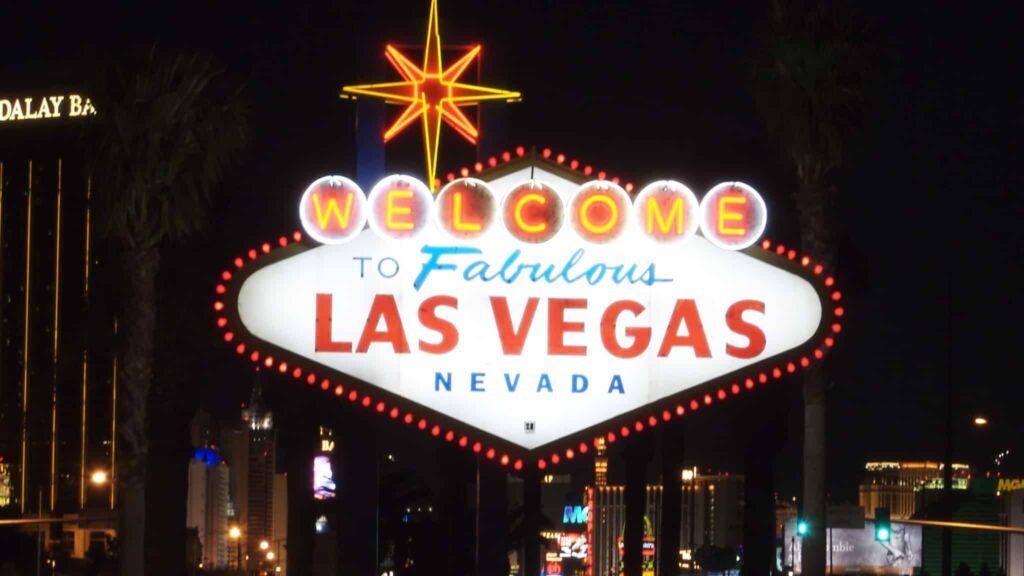From the flashy portrayal of gambling in movies, like the iconic Monte Carlo scenes in James Bond films, to the thrilling poker matches in old Western movies, pop culture often presents gambling as a glamorous and adventurous pursuit, overshadowing some of the lesser-known realities like financial risks and psychological impacts that often remain hidden.
The Cinematic Glamour: Gambling as a Storytelling Element
Cinema, especially, has a rich history of using gambling as a tool to drive narratives. It’s more than the games; it represents a world where glamour and high-stakes intertwine. Consider 'Casino Royale (2006)', where the poker match isn’t just a game—it’s a battleground that tests the characters, with stakes that shift more than just money but also personal resolve. Movies often highlight the dazzling side of gambling, with luxurious casino settings and the exhilarating feeling of big wins.
Yet the sparkling image often drifts far from the truth. Pop culture is adept at showcasing the excitement and promise of wealth, overlooking the shadow of addiction and loss that gambling can shadow over one's life. This partial reality can mislead people, especially young viewers who may idealize these portrayals rather than understand the responsible side of gambling.
A Detailed Look: 'Rounders' and the Rise of Poker
The film 'Rounders', released in 1998, sparked a renewed interest in poker during the early 2000s. With stars Matt Damon and Edward Norton, it laid bare the gritty underbelly of poker and romanticized the intellect and strategy required in the game. While it touched on the dangers of gambling addiction, the main storyline celebrated the skill and potential winnings. Its arrival coincided with a surge in online poker, inspiring many to try their hand, as the film suggested success was within reach with enough skill.
However, the real-life boom in poker was more nuanced than the movie conveyed. While some emerged as poker stars, many others faced monetary losses and the unpredictable nature of professional poker engulfed them. The film painted an optimistic view of poker where diligence could lead to victory, often downplaying luck’s significant role and inherent gambling risks.
Music and Lyrics: The Gamble of Life
Gambling imagery and themes have deep roots in music across various genres. Music often uses gambling as a metaphor for broader life themes, from risk-taking to fate. Kenny Rogers' 'The Gambler' is an iconic example, equating life’s decisions to knowing when to take risks or quit. This song encapsulates the human experience of confronting uncertainty through familiar gambling scenarios.
Nevertheless, music can sometimes glorify hazardous gambling habits, minimizing potential downsides. Although not always overtly promoting gambling, repeated use of such metaphorical language can normalize it as an exciting lifestyle choice. This subtlety, matched with cinema’s glamour, risks encouraging a permissive view of gambling, absent of its possible negative consequences.
Illustration: Lady Gaga’s 'Poker Face' and Mainstream Appeal
Lady Gaga’s 'Poker Face', an international pop sensation, uses poker as a metaphor for romantic intrigue and emotional secretiveness. Phrases from poker, like 'Russian Roulette' and 'Poker Face,' contribute to its engaging mystique, tying these sentiments to romance. While the song doesn’t directly address gambling addiction, its success and catchy refrain have intertwined gambling terms with modern pop culture, making the concept more accessible and trendy to many, especially younger fans. This example shows how even symbolic uses of gambling in culture can subtly influence perceptions towards it.
Literature: From Elite Casinos to the Shadowy Gaming Scenes
For centuries, literature has delved into gambling, spanning tales of high society’s casinos to the rough worlds where hustlers operate. Fyodor Dostoevsky’s work 'The Gambler', penned in 1867, offers a stark, personal look at addiction, mirroring his own struggles. It explores the psychological anguish of compulsive gambling, portraying the protagonist’s spiral into obsession—a more cautionary tale than what is often glamorously depicted in films or music.
At the same time, some literary works paint gamblers as charismatic figures living life on the edge, highlighting the game’s excitement, the strategic thinking it demands, and the prospects of climbing the social ladder through gambling success. Despite this romantic view, the inherent risks and possible downsides frequently surface, showing literature’s ability to present complex and varied perspectives on gambling compared to simpler portrayals in other popular media.
Comparison: Ian Fleming’s James Bond Novels Versus Movies
Ian Fleming’s James Bond novels, the foundation for the well-known film franchise, often explore gambling with greater depth and strategy than the movie adaptations. For instance, in 'Casino Royale', the poker game is central, with Fleming devoting extensive detail to its dynamics and Bond’s strategic finesse. While the films highlight the excitement and allure, the books offer insight into the nuanced psychology and skill behind games like baccarat and poker. The contrast between the novels and films showcases how adaptations can prioritize visual appeal and dramatic tension over detailed character development and thematic depth.
Television: Real-Life Stakes Mixed with Fictional Drama
Television's take on gambling varies widely, from reality series showcasing intense poker tournaments to fictional dramas unfolding the lives of gamblers and casino employees. Reality programs like the World Series of Poker broadcasts brought poker into people’s homes, driving interest in the game by focusing on the competitive aspects and the large prize potentials. These shows spotlight the personalities involved, adding excitement to the game and elevating poker to a respected and potentially rewarding pursuit.
Conversely, scripted dramas often loom over gambling's dark facets, exploring addiction, crime, and other societal impacts. Dramas such as 'Las Vegas' show the glamorous casino life but also delve into issues like security, fraud, and staff hardships. Recent shows like 'Ozark' and 'Breaking Bad' have used casinos and gambling as elements in criminal storylines, highlighting gambling's connection to illicit dealings. Television thus offers diverse and occasionally more lifelike portrayals of gambling compared to often glossy film and music depictions, while still leaning into drama and sensationalism.
Showcase: 'Breaking Bad' and Gambling as a Spark for Crime
In the television series “Breaking Bad” , gambling is intricately woven into the storyline, especially through the character of Saul Goodman and his network. These elements are often associated with Walter White's criminal enterprises. Gambling settings, like casinos, are shown as venues for money laundering and shady dealings. While gambling isn't the focus, its portrayal in the series suggests a link with moral uncertainty and unlawful activities. This depiction, while specific, reflects a portion of the reality where gambling is sometimes misused for illegal ends, illustrating an aspect of how pop culture can intertwine with gambling.
The Evolution of Video Games: Loot Boxes and Simulated Casinos
The surge in popularity of video games, especially in mobile and online multiplayer formats, has ushered in novel ways gambling is represented in popular culture. Loot boxes , a widely discussed feature in many games today, are likened to gambling due to their element of chance, where players pay real money to potentially receive items of varying rarity and utility. Although legal discussions continue in various legal systems, loot boxes imitate aspects of gambling psychology, notably affecting younger audiences who are more prone to developing addictive behaviors. This game-like approach to gambling is often found in products aimed at minors, prompting ethical discussions about its normalization and the possibility of it being a preliminary step to larger gambling habits.
Moreover, the presence of virtual casinos and online gambling platforms has been increasingly significant in digital media, often pushed by social media and influencers. These platforms blur the lines between gaming and gambling by presenting familiar casino aesthetics and providing easy access via digital devices, making gambling available to the younger demographic. The incorporation of gambling mechanisms within video games and online platforms prompts discussions about responsible gambling, especially considering at-risk groups, highlighting the continuously changing nature of gambling in the digital age.
Exploring Video Game and Gambling Convergence: “Grand Theft Auto V” Example
In the iconic video game series “Grand Theft Auto V” , a major update introduced “The Diamond Casino & Resort,” a comprehensive virtual casino where players can gamble using in-game currency that can be bought with real money. This setup blends lines between digital play and genuine gambling experiences. Although certain features involving real money are regionally restricted by Rockstar Games, the game’s integration of a full-scale casino within such a mainstream title shows how gambling becomes part of the entertainment spectrum among youths and solidifies gambling’s place in video game narratives. This case illustrates the growing intersection between gaming and gambling sectors and its potential impact on youthful audiences.
Surprising Facts: Beyond the Jackpot
Beyond the glitz and catchy jingles, there are several lesser-known realities about gambling's portrayal in pop culture.
- Inclusion of Gambling in Popular Media: Similar to how companies pay for product placement in films and series, the gambling sector also participates in these practices. Casinos, gambling applications, and specific games can appear in creative ways within popular media, subtly influencing how audiences perceive and favor these activities.
- Famous Figure Alliances: Well-known personalities, often viewed as influential, sometimes become the face of gambling companies and casinos. This alignment can alter public views and make gambling seem more mainstream, particularly influencing celebrity fans. Consider the myriad sports stars and film actors seen in poker contests or casino advertisements.
- Hype vs Reality in Casino Games: Pop culture tends to amplify the chances of winning and tones down the inevitability of losing in casino settings. Films might show characters winning big, creating a misguided belief about success odds, fostering delusional expectations among players.
- Enduring Gambling Myths: Many gambling misconceptions, like the gambler’s fallacy (thinking past outcomes affect current chances), are reinforced in popular media. Characters might base choices on such fallacies, and these portrayals can solidify misinformation in viewers, leading to poor gambling habits.
- Lack of Focus on Gambling Problems: While some narratives briefly address gambling-related issues, they are often overshadowed by the glamorous and exciting elements of gambling. Pop culture typically emphasizes winners and thrill seekers, neglecting those battling gambling addiction and the toll on families.
- Impact on Gambling Legislation: Fictional portrayals in media can shape public perception and sometimes influence gambling laws. The stories told in the media mold societal outlooks on gambling, impacting legislative choices and initiatives to promote responsible gambling.
Final Thoughts: Critical Analysis and Mindful Engagement
Gambling as seen in popular culture offers a rich canvas of stories. It surfaces as strong narrative support, a muse in music, an exploration path in literature, and a developing theme within media like television and video games. Yet, recognizing that these depictions are often idealized, chosen selectively, and sometimes misleading is crucial. The allure of big wins, alongside the minimal depiction of gambling challenges, can skew reality.
As viewers of popular culture and, more importantly, as participants in gambling, it's vital to assess these representations with a discerning eye. Enjoy the tales and symbols but stay grounded in understanding the truth. Acknowledge that the media’s portrayal of gambling is but one aspect of a broader concept that bears real consequences and duties. Responsible gambling involves informed choices, including awareness of how pop culture molds our views and attitudes towards gambling.
Ultimately, the less obvious truth about gambling in popular media isn’t just in what's shown but what's often omitted. By recognizing these gaps and viewing media portrayals thoughtfully, we can build a more nuanced and insightful view of gambling and its role within our culture and society.
External Resources:
- National Council on Problem Gambling Information: https://www.ncpgambling.org – A resource hub for understanding problem gambling and defined guidelines for responsible gambling.
- The Problem Gambling Institute of Ontario (PGIO) Details: https://www.problemgambling.ca – Provides studies, teaching resources, and materials related to managing problem gambling in Ontario.
- Responsible Gambling Council: https://www.responsiblegambling.org – A Canadian charity focused on preventing gambling issues before they start.
- GamCare (UK): https://www.gamcare.org.uk – Supplies aid and data for individuals grappling with gambling problems in the UK.
- Gambling and Popular Media Studies at University of Nevada, Las Vegas: https://www.unlv.edu/articles/gambling-and-pop-culture – Access academic analyses and source material on gambling's role in popular culture.



